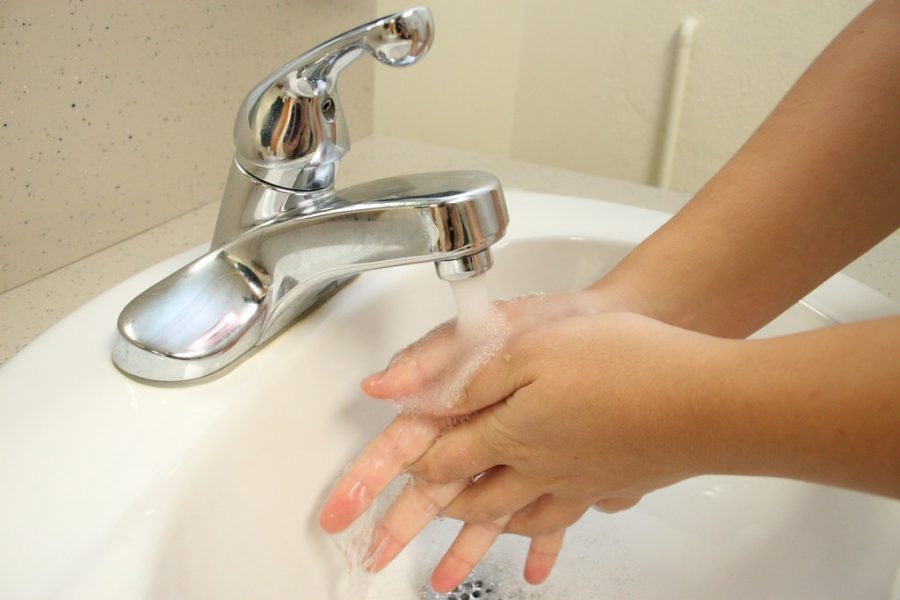Staying safe and healthy during COVID-19 era
Photo courtesy of Stephanie Schupska under Creative Commons license
Washing hands thoroughly and frequently can slow the spread of COVID-19.
March 26, 2020
With the rapid spread of COVID-19 across the world, it is imperative that people know how to stay safe during the pandemic. Although there are many initiatives that people can take to prevent the spread of the virus, there are a few major guidelines that cuerare considered to be the most effective. According to the New York Times, hand-washing, social distancing and staying informed are key to preparing for the coronavirus.
According to the Centers for Disease Control and Prevention (CDC), hand-washing for at least 20 seconds can substantially decrease the risk of contracting the virus. “I always wash my hands when I get back from the grocery store,” junior Olivia Shankle said via text message. Additionally, the CDC advises that people should use hand sanitizer containing at least 60 percent alcohol if they do not have access to soap and water.
Another vital tip to staying safe during the virus is social distancing, the act of avoiding close contact with people to prevent the spread of disease. Although it might be tempting to spend time with friends during the school closure, the virus could spread by being within 6 feet of an infected person, according to the CDC.
In addition, it is important to stay informed and know the general symptoms of the coronavirus. According to the Mayo Clinic, the main symptoms of the virus include fever, cough and difficulty breathing. The Mayo Clinic suggests that anyone showing these signs should contact a doctor immediately and stay away from other people.
Although much of the information circulating around the media regarding the coronavirus is dependable, there have been a lot of myths about it too. It is crucial for people to get their information through reliable sources, such as the CDC, World Health Organization (WHO) or a trusted adult. “I hear stuff online, but my dad is making sure that we get reliable information and can talk out anything new we hear to figure out how reasonable or probable it is,” Miller said.
One misconception about the virus is that antibiotics and current vaccines can be used to prevent or treat it. However, antibiotics are ineffective because they only kill bacteria, not viruses. According to the Mayo Clinic, although certain medicines and cough syrups may help relieve people of symptoms, they will not cure people of the virus.
Another myth circulating around the media is that the virus can spread through shipments from China. However, the National Institute of Health (NIH) claims that the virus only remains on cardboard surfaces for one day and plastic/stainless steel for two days. While it may be possible that the virus can be transmitted through contaminated surfaces, it is not thought to be the main way that it spreads.
Lastly, there have been rumors that face masks can help protect people from contracting the coronavirus. According to John Hopkins Medicine, masks will only protect people who already have the virus from spreading it to others. There are certain medical respirators that may protect health care workers, but those are already in limited supply and should be reserved for such medical workers. “Masks only help if they’re good quality and the person wearing it is the one infected, so don’t go buying up a bunch of cheap plastic ones from CVS,” Miller said.
By practicing these safety precautions, everyone can contribute to preventing the spread of the coronavirus. The Maryland government has already closed down schools, restaurants and stores, and have prohibited large gatherings. “I think Maryland’s done pretty well. They’ve been really proactive, especially with closing down restaurants and movie theaters,” Shankle said. However, it is still mainly up to the people to ensure that the coronavirus does not spread further.



